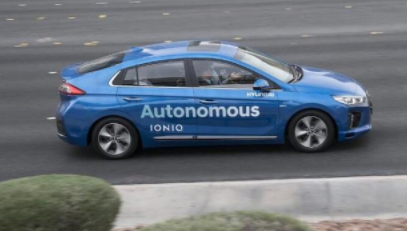The evolution of traditional vehicles has reached a plateau, and today, the fields of autonomous driving and shared mobility represent a massive business opportunity. These innovations have the potential to truly break free from the cyclical sales patterns that have long plagued the automotive industry. Looking at the U.S. auto industry over the past three years, it's clear that the sector still suffers from significant cyclicality. Sales often fluctuate based on economic conditions, leading to periods of growth followed by sharp declines. If this cycle continues, demand for passenger cars and trucks in the U.S. market is expected to decline further. Automakers have been trying to escape this pattern since the early days of the automobile, exploring various additional revenue streams, especially through financing and leasing models to encourage consumer purchases. Now, for the first time in decades, automakers have a real opportunity to break free from the cyclical sales "curse." That’s why many major car companies are making big investments in electric and autonomous vehicles. Setting ambitious goals and announcing billions in investment might not cost much today, which is why electric vehicles currently make up only about 1% of global sales. In the commercial space, we haven’t seen fully self-driving cars yet, but there’s plenty of media coverage and speculation about the future of electric and autonomous transportation. Morgan Stanley analyst Adam Jonas recently highlighted this shift in his report. He pointed out that traditional automakers are becoming increasingly aware of the need to adapt. There are also growing differences between automakers and suppliers when it comes to autonomous and shared mobility. Both sides believe that driverless technology will eventually replace human drivers, and they're starting to find sustainable business models that convert one-time sales into recurring revenue streams. A stable cash flow aligns well with the long-term strategies of automakers, which have historically relied on financing and leasing to generate ongoing income. For any executive in the automotive industry, this model is highly appealing—especially from a financial standpoint. Clearly, the traditional model of human-driven cars is no longer as exciting or profitable as it once was. We are standing at the beginning of a major transformation in the industry. Although some executives at well-known companies still express doubts about the viability of autonomous driving, the broader consensus is that automakers are now facing a new era of opportunities that is very different from the past. Other capacitors Other Capacitors,Ac Filter Capacitor,Power Saver Capacitor,Line Filter Capacitor,Low Voltage Capacitor YANGZHOU POSITIONING TECH CO., LTD. , https://www.yzpst.com